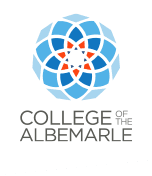Financial Aid Office
College of The Albemarle’s (COA) Financial Aid Office does not disclose financial information, offer amounts, or disbursements by email to anyone, including the student. Incoming information becomes the property of COA and may not be released to third parties, including the applicant.
Financial Aid Office Code of Conduct
The Financial Aid Office at COA is a member of National Association of Student Financial Aid Administrators (NASFAA). We abide by NASFAA’s Code of Conduct for Institutional Financial Aid Professionals (PDF), which states that an institutional financial aid professional is expected to always maintain exemplary standards of professional conduct in all aspects of carrying out his or her responsibilities, specifically including all dealings with any entities involved in any manner in student financial aid, regardless of whether such entities are involved in a government sponsored, subsidized, or regulated activity. In doing so, the Financial Aid Office at COA is bound by the following:
The NASFAA Code of Conduct, subject to enforcement procedures, was last updated in November 2020 and published in January of 2021. NASFAA institutional members of NASFAA will ensure that
- No action will be taken by financial aid staff that is for their personal benefit or could be perceived to be a conflict of interest.
- Employees within the Financial Aid office will not award aid to themselves or their immediate family members. Staff will reserve this task to an institutionally designated person, to avoid the appearance of a conflict of interest.
- If a preferred lender list is provided, it will be compiled without prejudice and for the sole benefit of the students attending the institution. The information included about lenders and loan terms will be transparent, complete, and accurate. The complete process through which preferred lenders are selected will be fully and publicly disclosed. Borrowers will not be auto-assigned to any particular lender.
- A borrower’s choice of a lender will not be denied, impeded, or unnecessarily delayed by the institution, even if that lender is not included on the institution’s preferred lender list.
- No amount of cash, gift, or benefit in excess of a de minimis amount shall be accepted by a financial aid staff member from any financial aid applicant (or his/her family), or from any entity doing business with or seeking to do business with the institution (including service on advisory committees or boards beyond reimbursement for reasonable expenses directly associated with such service).
- Information provided by the Financial Aid office is accurate, unbiased, and does not reflect preference arising from actual or potential personal gain.
- Institutional financial aid offers and/or other institutionally provided materials shall include the following:
- Breakdown of estimated individual cost of attendance components, including which are direct (billed by the institution) costs versus indirect (not billed by the institution) costs
- Clear identification and proper grouping of each type of aid offered indicating whether the aid is a grant/scholarship, loan or work program
- Estimated net price
- Standard terminology and definitions, using NASFAA’s glossary of terms
- Renewal requirements for each aid type being offered as well as next steps and financial aid office contact information
- All required consumer information is displayed in a prominent location on the institutional website(s) and in any printed materials, easily identified and found, and labeled as “Consumer Information.”
- Financial aid professionals will disclose to their institution any involvement, interest in, or potential conflict of interest with any entity with which the institution has a business relationship.
Statement of Ethical Principles, Enforcement Procedures, as well as the Ethical Principles, Code of Conduct and Enforcement Procedures Q&A for more information about NASFAA’s ethical guidelines and how they are enforced.
Resources
What’s Changed for the 2024–25 FAFSA® Form? (YouTube video)
Understand and Prepare FAFSA® Form Contributors (YouTube video)
Gather Information Required To Complete the FAFSA® Form (YouTube video)
Applying for Financial Aid With the FAFSA® Form (YouTube video)
Create and Access Your StudentAid.gov Account (YouTube video)
Who Is a Contributor on the 2024–25 FAFSA® Form? (YouTube video)
What Does It Mean To Provide Consent and Approval on the 2024–25 FAFSA® Form? (YouTube video)
Contact
Askew, Michelle
Admissions and Financial Aid Technician
COA – Elizabeth City: AE 141
252-335-0821 ext. 2385
Bowe, Dannette
Financial Aid Advisor
COA – Elizabeth City: AE 146
252-335-0821 ext. 2218
Brown, Amanda
Financial Aid Advisor
COA – Elizabeth City: AE 138
252-335-0821 ext. 2292
Sawyer, Trisha
Director, Financial Aid
COA – Elizabeth City: AE 136
252-335-0821 ext. 2254
Woodley, Crystal
Financial Aid Advisor
COA – Elizabeth City: AE 113
252-335-0821 ext. 2246


